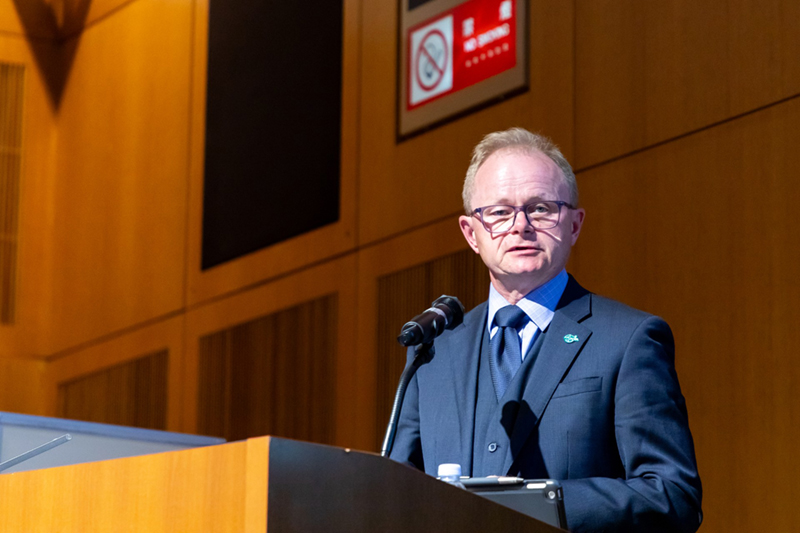 Dr Mark Schipp has seen disease incursions around the world in his former roles.
Dr Mark Schipp has seen disease incursions around the world in his former roles.
Keeping Australia’s disease-free status
Dr Mark Schipp, former Australian Chief Veterinary Officer and former President of the World Organisation for Animal Health, has dedicated his life to preventing infectious animal diseases around the world.
In November, he will be presenting in Perth at LIVEXchange − Australia’s premier livestock export conference.
Mark is one of more than 30 speakers who will share information and insights into the livestock export trade throughout the two-day event.
In his presentation, Mark will discuss ‘When disease goes global: impacts and interventions’.
The global impact of diseases
Preventing disease is a matter of animal welfare, however, the impacts of disease have a ripple effect, impacting global trade, market access and food security.
“Recently, Brazil has been recognised as free of foot-and-mouth disease (FMD), which will have a big impact on global markets,” Mark said.
“At the same time, we’ve seen the spread of lumpy skin disease, FMD and African swine fever into Australia’s near neighbours countries, which presents a challenge to both them and Australia.”
During his presentation, Mark will explore a range of diseases and their impact, including famine and a huge loss of both animal and human life.
When it comes to protecting Australia from those impacts, Mark said country relationships, as a biosecurity measure, are just as important.
“Australia has had a long history of quarantine and biosecurity measures that have maintained our disease-free status but maintaining those barriers comes at a cost.
“There is an impact on our ability to access markets because other countries think, ‘Why should we accept your product if you won’t accept ours?’,” Mark said.
Mark said Australia is in a good position to assist other countries.
“We’ve got expertise that we can contribute and it’s a good investment for Australia to be working with our neighbours and trying to build up laboratory and veterinary capability.
“At the same time, we need to make sure our ‘house is in order’ and that we’re alert to any changes.”
Maintaining biosecurity in Australia
Australia has long maintained a status free of diseases that are critical to the livestock industry.
Mark said that the live export industry is on the frontline of maintaining that status, forming a critical avenue for both exposure and protection.
“We send animals into regions which are highly affected by some diseases, and the industry is very stringent about ensuring only clean vessels return and that people returning from those markets don’t inadvertently bring that disease back,” Mark said.
While Australia’s biosecurity measures are strong, Mark said past incursions prove why we need to remain vigilant.
“We’ve had disease incursions which sometimes have no real explanation of how they emerged.
“We can’t be complacent about our ability to remain disease-free because we know the impact it can have,” he said.



